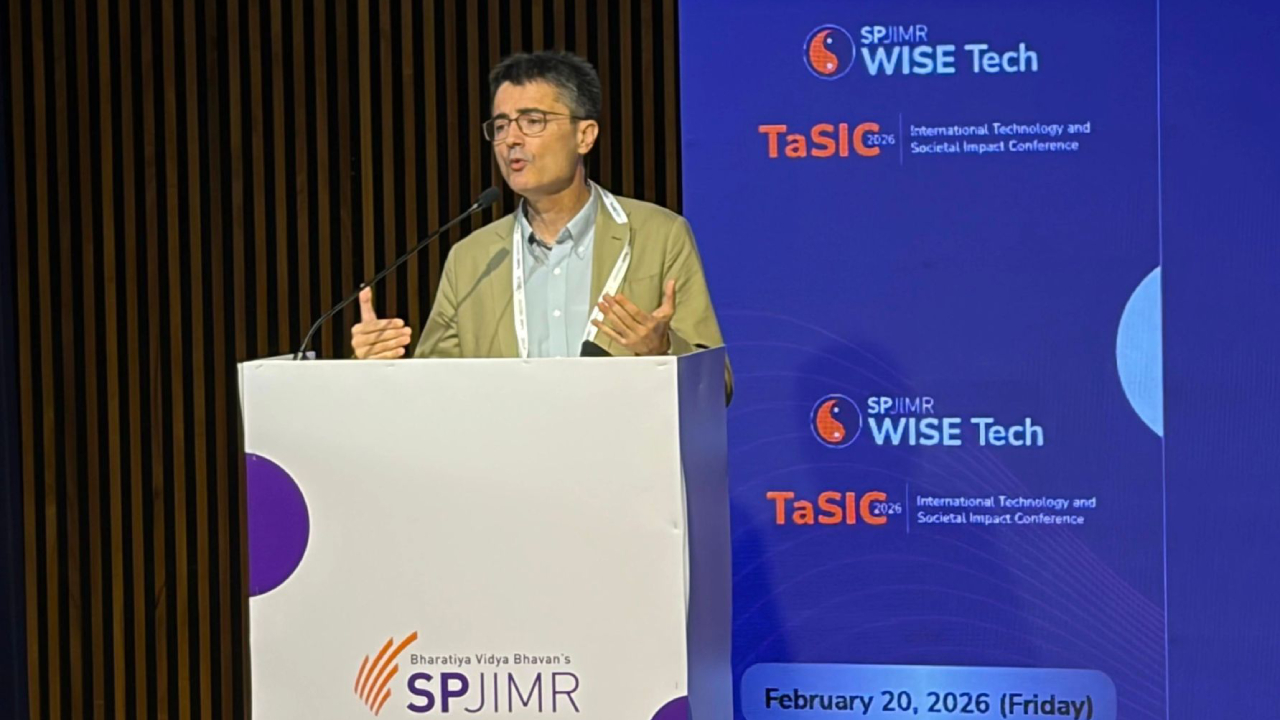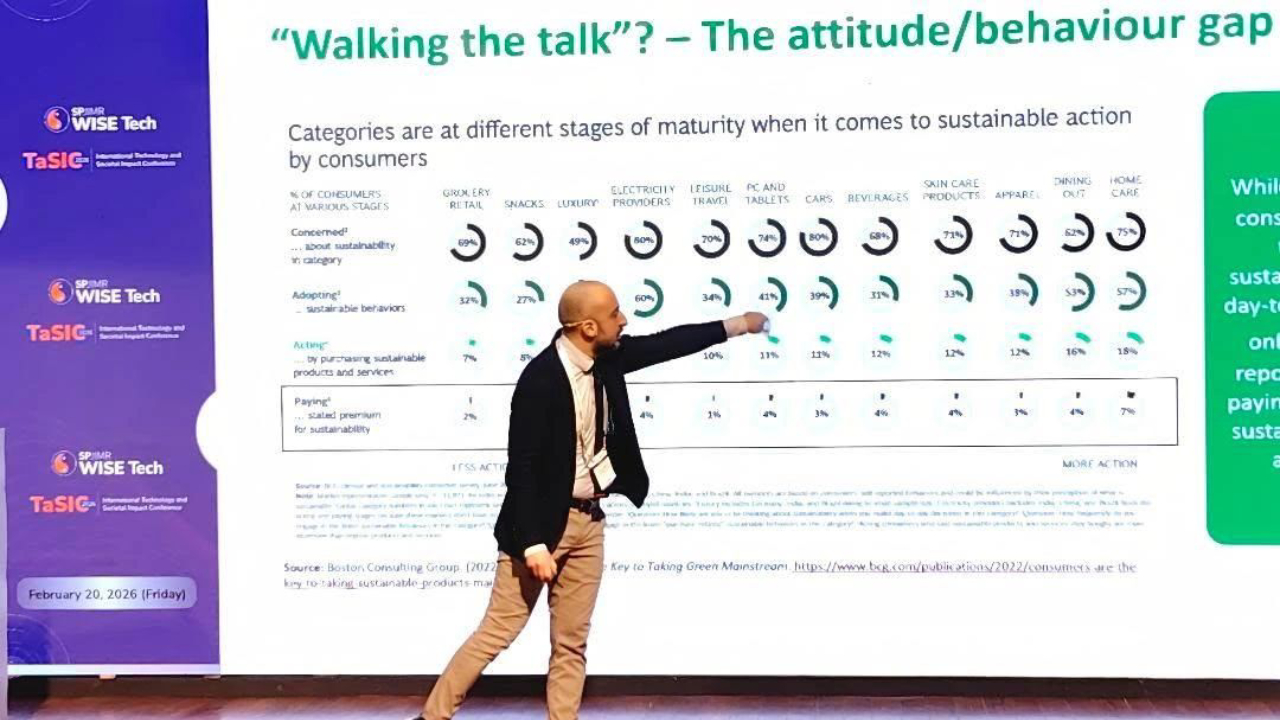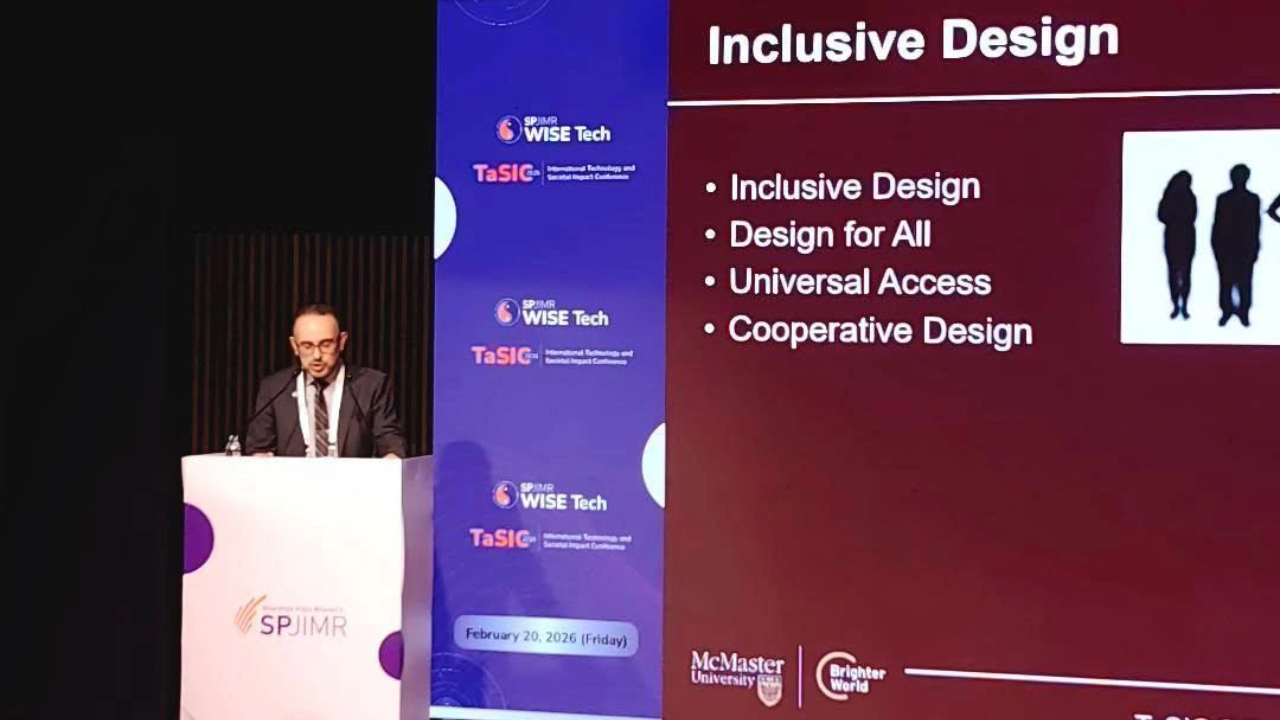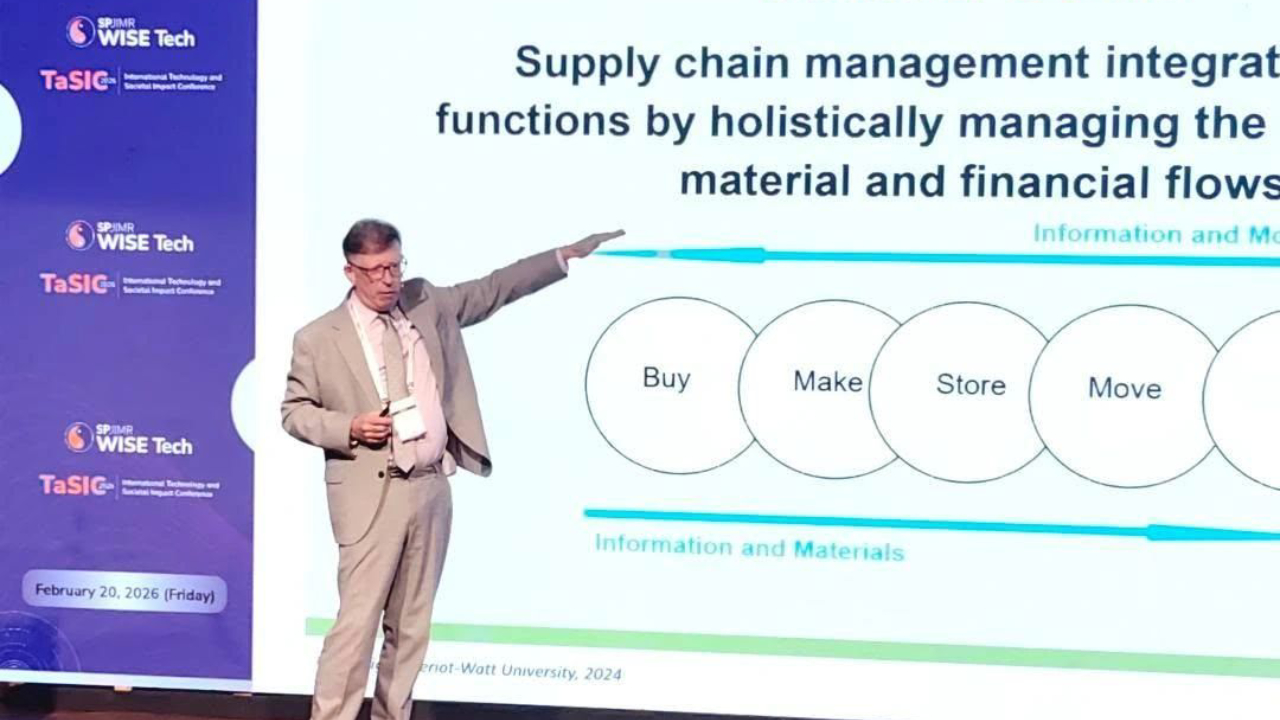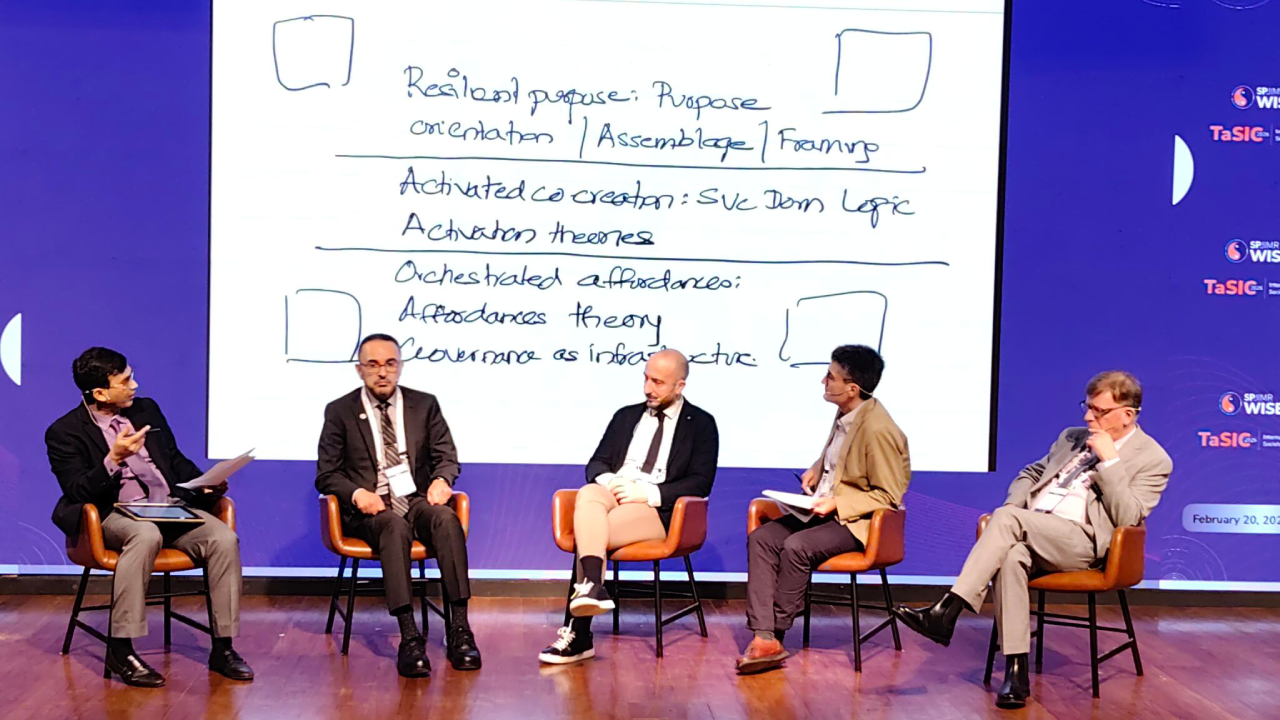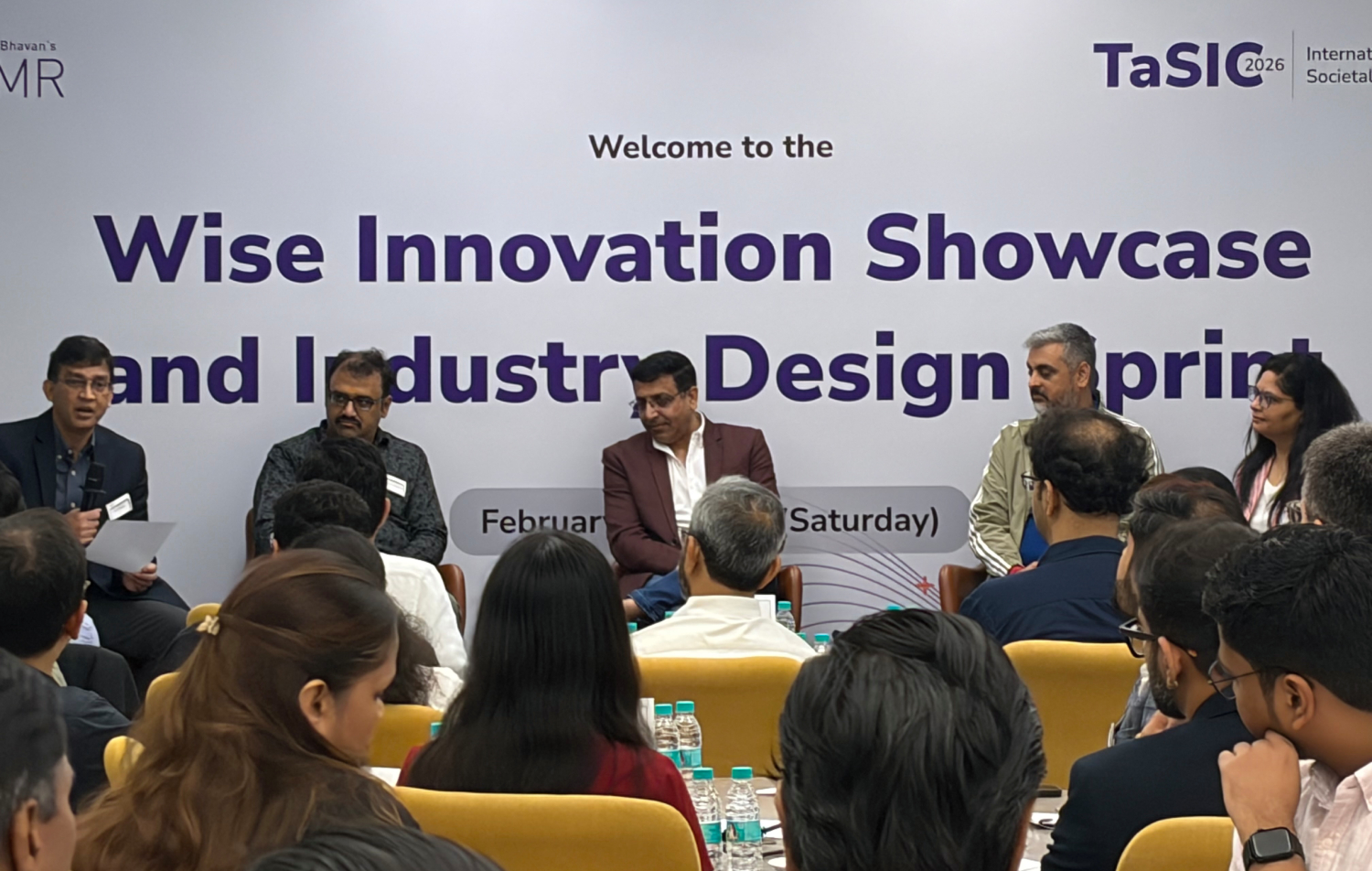Recognition of academic excellence: Best Paper Awards
The TaSIC 2026 Best Paper Awards recognised research demonstrating exceptional theoretical rigour and potential for real-world impact.

Robustness and generalisability of evidence
Beneath the browsing silence: diagnostic meta-analysis of cyberloafing and OCB patterns among digital generations by Pravin Kamble, Vijayalakshmi V., and Kamalanabhan T.J.

Conceptualisation
“How subtle was it?”: role of intensity of workplace incivility and HRM system in observer’s response to incivility by Bhumi Trivedi and Aditya Moses

Novelty and originality
Why Gen-Z dines with the camera first: Insights from Instagram-friendly phygital restaurants by Subhojit Sengupta and Aruditya Jasrotia

Theorising and
empirical rigour
Long-run BRICS-GHG dynamics: quantifying the shifting roles of innovation, economic growth, financial development, and oil prices by Vaishali S. Dhingra
Day 2: Industry design sprint: Co-creating actionable prescriptions
Day 2 featured an executive-level Design Sprint to generate strategic inputs for the SPJIMR policy paper, ‘India 2026: Prescriptions for Meeting Growing Aspirations Sustainably and Responsibly.’
Nearly 50 ‘sprinters’, including faculty, senior alumni and industry leaders, worked in cross-sector teams of five to surface ‘experienced judgment’. This methodology allowed for a high-intensity synthesis of practitioner insights to solve the ‘Aspiration Paradox’. Panel included:
- Deepak Iyer (EVP and President, AMEA, Mondelēz International)
- Manjari Upadhye (CMO, Mahindra & Mahindra Automotive)
- Subramanian Chidambaran (Chief Strategy and Sustainability Officer, Cummins India)
- Sunil Kataria (CEO and MD, Godrej Agrovet)
- Suraj Saharan (Co-founder, Delhivery)
- Venu Nair (Chief of Strategic Partnerships, Myntra)
Wise innovation showcase
The showcase presented six pioneering innovations selected from nearly 1,000 nominations, emphasising ‘wise’ technology that balances entrepreneurial drive with social equity and empathy.
Climate and environmental resilience
Winner: FluXGen
An AI- and IoT-based water intelligence platform enabling industrial clients to reduce water wastage by up to 30%, fostering critical resource resilience.
Finalist and Jury’s Choice: BatX Energies
A hydrometallurgical recycling process recovering 97–99% of materials like lithium and cobalt, reducing India’s import dependence and powering the circular economy.
Inclusive human capital and opportunity
Winner: Languify AI
An automated coaching tool that bridges the rural-urban divide by providing employability training to non-metro youth at one-tenth the cost of traditional methods.
Finalist: Thinkerbell Labs
Creators of “Annie,” the world’s first interactive Braille self-learning device, which has boosted independent literacy for visually impaired students across 16 states.
Health, nutrition and wellbeing
Winner: YourDOST
A digital counseling platform that has delivered 15 lakh sessions, democratizing mental wellness access for students and professionals through scalable technology.
Finalist: LogyAI
A WhatsApp-based AI screening tool for cataracts that achieves 92% accuracy, providing low-cost diagnostics to rural populations via simple mobile interfaces.
Conclusion and institutional acknowledgements
TaSIC 2026 concluded as a landmark event in scholarly stewardship, successfully bridging the divide between academic theory and industry application. A vital component of the conference’s success was the preceding Online Research Writing Workshop, where 10 expert faculty coaches—including representatives from Case Western Reserve University, IIM Calcutta, IIT Madras, Michigan State University, IIM Raipur, and the University of Vermont—mentored scholars to elevate the methodological rigor of their submissions.
Dean Varun Nagaraj offered a closing note of gratitude, specifically acknowledging the FPM scholars and Dean’s TaSIC fellows for their vital rigour behind-the-scenes contributions and synthesis work. He thanked the nearly 100 reviewers, track chairs, and international speakers for their scholarship and openness. The conference stands as a testament to the power of a community united by a shared purpose: leveraging technology and management for the greater good of society.
Subscribe for updates
Write to us for queries and partnerships: tasic@spjimr.org


